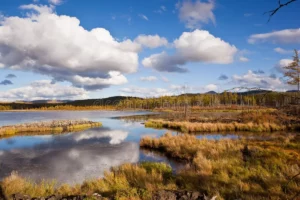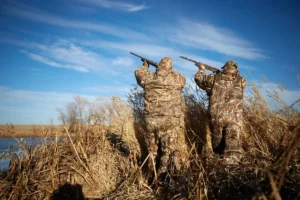 During your first visit, you shouldn’t just focus on the physical land that you are looking to buy. A large water reserve could be hidden under the surface, and this can have a significant impact on the value of your land as well as the way that you will use it if you purchase. Water rights are often sold or leased separately, sometimes for very large sums of cash. The rights to these natural resources are therefore more attractive to investors.
During your first visit, you shouldn’t just focus on the physical land that you are looking to buy. A large water reserve could be hidden under the surface, and this can have a significant impact on the value of your land as well as the way that you will use it if you purchase. Water rights are often sold or leased separately, sometimes for very large sums of cash. The rights to these natural resources are therefore more attractive to investors.
Surface water and groundwater are the two types of water which affect landowners. Surface water (such as a stream or pond) is classified above ground. Groundwater, on the other hand, is found below ground. Your interests as a potential landowner may lie further below the surface.
The majority of drinking water is derived from wells and springs. Therefore, groundwater should be considered when purchasing land. Surface water and groundwater both have different rights that you should be aware of before signing any purchase agreements.
Without professional guidance, landowners may have trouble understanding water rights. In every region, there is a complex interaction of federal, state and municipal laws. It can take a lot of time to navigate the details and stay compliant with the laws.
Learn the Basics
Water rights are not ownership of the water, but rather authorization to use it in a certain way. The key is how water is being used. The laws vary greatly because each state has different weather conditions, and different ideologies about the use of water. Some states treat surface and groundwater the same, giving landowners greater freedom to use water in their own way. States that are drier and more susceptible to droughts have stricter laws. Landowners are required to seek the approval of the state government to exercise their right to water.
Water is not all created equal. Senior water rights and Junior water rights exist. Water is first granted to the senior water right. The next senior water right follows. The most junior rights can be denied when water is scarce or disputed. Bob Regester of Mossy Oak Properties Colorado Mountain Realty, Divide, Colorado noted that appropriation dates before 1900 are senior and those after 1900 junior.
The date on which an owner receives water rights is called the appropriation. Other users of water must respect the rights of the initial appropriator.
In states with water scarcity, especially those in the West, the division of rights between surface and groundwater is also more strictly regulated.
Regester said that in most cases, when the land contains surface water, water rights aren’t available, as they are usually owned by multiple municipalities across several states. You may not divert or dam a stream, or use it to build your home. You can only fish, wade and let your animals drink water from the stream.
You can find out what water rights are associated with the land that you’re considering buying by performing a title search in your county. If necessary, you can also speak to a state official directly. A prospective buyer, just like with mineral rights should get as much information about water rights as possible to make sure that the seller has the right to it. You can get help from a professional in this regard, since water rights are often abandoned on land.
Water Rights During a Sale
You’ll need to ensure that all water rights are fully disclosed when you buy land. Water rights can be sold as part of a land sale or separately.
Regester noted that three types of deeds can be used for the conveyance water rights. These are a general warranty, a special guarantee, and a quitclaim deed. Water that was deemed to have a more recent appropriation date by a court (the date that it was put to its first beneficial use as decreed) will be more valuable, and therefore more expensive.
Land buyers should also look into drilling rights. Certain wells are drilled with close supervision by the state. Wells with higher water levels are more valuable. According to Regester, in some areas like Colorado, drillers are 90 percent successful at hitting water.
You can determine the extent of your rights by familiarizing yourself with past well production. Land brokers can provide you with information on neighboring properties, allowing you to see what other property owners do with their water rights. You can be more confident about your decision to complete the deal in which the water rights are immediately transferred.
Regester said that it is crucial for buyers to verify the well production rate of nearby properties with existing wells. If a buyer plans to purchase a property that has a well on it, they should test the water quality and production rate.
Respecting Water Rights
The West is at a crossroads in terms of water supply and demand. The importance of water rights is not to be underestimated, particularly since it is our most valuable resource. Not knowing your rights can lead to a decrease in the value of the land you own, as well as causing problems with the state. It can also cause health issues.
Even if your water is pure and safe, it’s still important to test regularly. This will establish a record for water quality. The water should be checked for excessive contamination, and the presence of minerals. If water is too contaminated, it will not be useful if it’s not cleaned and chlorinated.
It is important to know your local laws, and that you use your water in compliance with them.
A Mossy Oak Properties Certified Land Specialist will help you to understand your water rights and how to obtain them. Water attorneys and municipal regulators can provide additional assistance.
Original Blog: https://www.landthink.com/whose-water-is-it-anyway-understand-your-rights/





